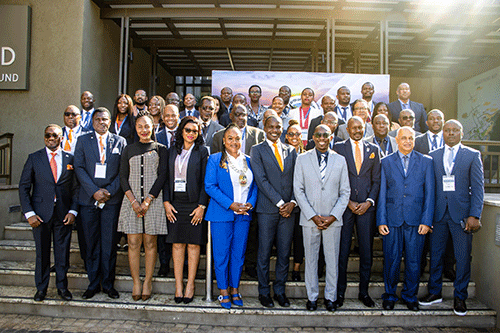SWAKOPMUND – Finance minister Iipumbu Shiimi says policy alignment is key to creating a fertile ground for the African Continental Free Trade Area (AfCFTA) to succeed.
African countries need to work harder to boost trade among each other.
To realise this, customs officials also play a key role in this effort to grow the economy and reduce poverty.
Shiimi was speaking at the opening of the 30th governing council meeting of the World Customs Organisation (WCO) East and Southern African Region, held yesterday in Swakopmund.
“We need to implement effective border management in our region, particularly within the framework of the AfCFTA, digitalisation, transit facilitation, and data utilisation. Streamlined procedures at borders not only facilitate trade but also significantly contribute to regional economic growth and stability,” he said.
Shiimi further pointed out that trade among African countries leaves much to be desired.
To fix this, countries need to share information, connect their systems, and align their laws and policies.
Namibia’s commitment to this big project is a key step towards economic integration in the region. Customs officials make trade smoother, ensure rules are followed, and create a good environment for business.
Taking pride, Shiimi said Namibia hosting the meeting signifies the progress the Namibia Revenue Agency (NamRA) has made since its establishment.
“It shows how important customs officials are in promoting trade in Africa,” the former central bank governor said.
The meeting was attended by customs officials from 24 countries, WCO secretary general Ian Saunders, and council chairperson Edward Kieswetter. The WCO is an international group that helps make trade across borders easier and more efficient. It has 183 member countries.
Meanwhile, WCO council chairperson Kieswetter said leaders should aim for unity and connection, reflecting their values of family and stewardship.
“Leadership is a privilege, not an entitlement, and requires a daily commitment to serve and improve the world we inhabit. In the face of rapidly-evolving challenges driven by artificial intelligence and disruptive technologies, it is essential to recognise that a customs risk anywhere is a customs risk everywhere,” he said.
He called for strong leadership that balances trade facilitation with law enforcement to protect society.
“As we deliberate on customs issues, we must focus on our common good and defence against shared threats, always mindful of the people affected by our decisions and the responsibility to uphold our leadership roles with integrity and dedication,” he urged.



